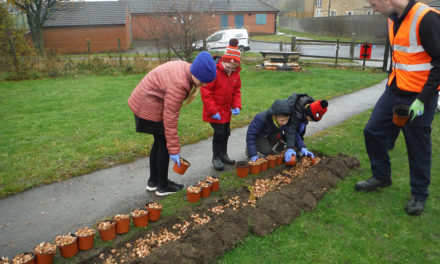A new plan sets out actions to ensure the best possible response to major incidents in County Durham on the back of Storm Arwen.
Durham County Council’s Cabinet will next week be asked to agree to the implementation of the plan, drawn up by officers following a thorough review of the response to the storm locally.
The meeting on Wednesday 13 July will be presented with the results of that review, and the content of the plan, which sets out a need to expand community resilience and improve incident planning and preparedness. It also advocates reviewing emergency response resources; communication and information sharing; and decision making and governance.
Cllr John Shuttleworth, the council’s Cabinet member for rural communities, highways and community safety, said: “Storm Arwen was unprecedented in terms of the impact it had right across Britain.
“We know thousands of people in mainly rural areas of County Durham were without power for significant periods, and we understand what a difficult time this was and the challenges it posed.
“Like other agencies involved in the response we have been keen to look back at how events unfolded, with a view to identifying anything that could have been done differently, and to get the views of residents and other stakeholders to ensure our review is as thorough and robust as possible.
“What the review confirmed is the way in which people from various organisations and members of the public rallied round to assist those in need and we would like to pay tribute to everyone who helped in any way.
“We would also like to thank everyone who responded to the review. We are pleased to now be poised to agree a plan which has been produced following careful consideration
of all of the feedback and strives to ensure that the response to major incidents in County Durham is the best it can be in future.”
A report to the meeting recalls how the storm hit on 26 November last year. It sets out how in County Durham, more than 14,860 residents were without power, many for several days before electricity was ultimately restored to all properties on 9 December.
The report sets out how County Durham and Darlington Local Resilience Forum (LRF), the council and Northern Powergrid responded to the storm and how, at the request of the local authority, a major incident was declared on 1 December amid uncertainty about how long power would be off. Cabinet will be reminded how the council asked for military assistance as a result of which the Army was deployed.
The report recalls the public response to the storm: “As with previous incidents and the response to Covid-19, community, voluntary and faith groups across the county were outstanding in rallying-round and providing rapid and spontaneous support, which
ranged from checking on isolated people, providing food and supplies, to opening-up community centres, halls and churches to provide places for shelter, company and warmth. Given the duration and widespread nature of the outages, community, voluntary and faith groups responses were invaluable in helping people affected by the storm.”
Cabinet will be told that for its review, the council spoke to officers who responded to the
storm; councillors; community organisations and parish councils which responded to the incident, and the general public. To ensure external challenge and peer review, Durham University and Cornwall Council were consulted, while the views of the authority’s
Safer and Stronger Overview and Scrutiny Committee were also sought.
Cabinet will be told that, based on the findings of the review, the plan suggests the following actions:
- Review and expand community resilience across the
county;
- Improve incident planning and preparedness through emergency
planning, training and exercises, including for councillors;
- Review emergency response resources and establish qualifying
criteria for future incidents;
- Review communication and information sharing during incident response;
- Develop a protocol for the activation and use of council staff during an incident;
- Review strategic, tactical and operational decision making and governance.
The meeting will be asked to agree a series of recommendations including that the council agrees to support the expansion of community resilience support across the county, as well as the provision of improved training for councillors and officers on emergency
planning. Cabinet will also be asked to agree to the council sharing the report with Northern Powergrid and the LRF.
To view the results of the review and the plan, visit https://democracy.durham.gov.uk/documents/s159286/Storm%20Arwen%20review.pdf











